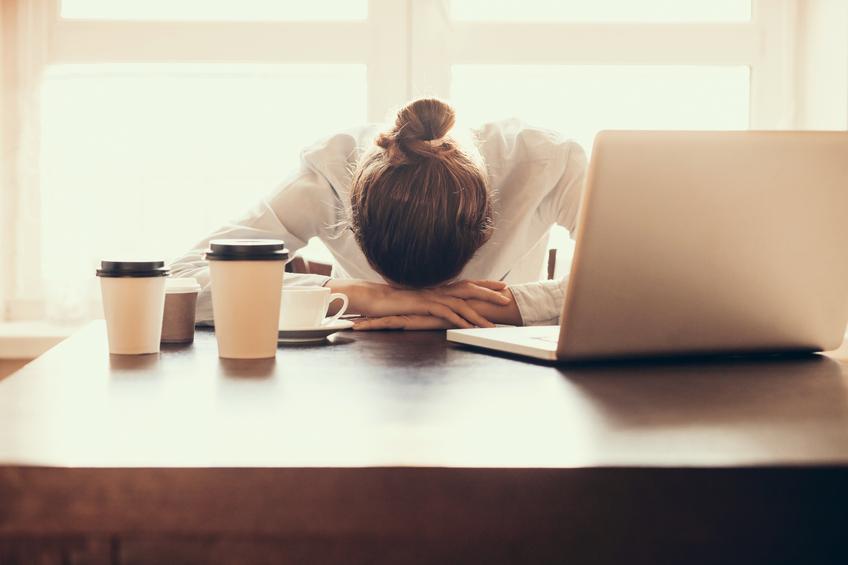How Stress Affects Women's Health

Stress doesn’t have to be caused by a traumatic event. Your Bucks County OBGYN doctors at Doylestown Women’s Health Center know that women experience stress from a variety of life events, such as starting a new job, moving to a new city, or having a baby. What most women don’t know, however, is that stress can have a bigger impact on you and your body than simply making you feel anxious. Here are several ways that stress may be affecting your health:
It Decreases Your Sex Drive
When your mind is somewhere else, it can be hard to enjoy an intimate moment with your partner. According to several studies, stress can definitely have a negative impact on your libido. This occurs when elevated levels of cortisol, a stress hormone, suppress the body’s natural sex hormones.
Chronic stress can also impact your body’s production of estrogen, which keeps your reproductive system healthy and functioning properly. With a decrease in your estrogen levels, you could feel a dip in your sex drive as well.
It Makes You Gain Weight
In times of stress, one of the most common comforts people indulge in is binge eating (commonly known as ‘stress eating’). This is one of the obvious reasons that many women gain weight when they are stressed, but studies show that stress and weight gain are correlated on a hormonal and physiological level as well.
According to a scientific article published in Psychoneuroendocrinology, women who are constantly stressed metabolize fat and sugar differently than women who are not. Additionally, research has linked higher levels of cortisol to a decreased metabolism and increased sugar cravings and overall appetite.
It Makes You Break Out
Have you ever been stressed about something in your life, and suddenly you wake up one morning with an acne breakout? When you experience elevated levels of anxiety, a sex hormone called androgen spikes up, which can cause excess oil production. The excess oil on your face and other parts of your body oftentimes cause an acne breakout.
In addition to acne, some women experience rashes and hives when they’re stressed. This is because anxiety strongly impacts your immune system, which can cause eczema and other skin conditions to flare up. Rashes and hives can usually be managed with over-the-counter lotions or anti-itch creams that are made from natural ingredients.
It Messes With Your Period
Regardless of whether your stress is short-term or long-term, increased levels of anxiety can fundamentally alter your body’s natural hormone levels. Similar to how a dip in estrogen can affect libido, this imbalance of hormones often results in missed, late or irregular periods. Studies have also found that women who work in high-stress positions are 50 percent more likely for a shorter ovulation cycle (less than 24 days) than women who work in less stressful environments.
It Can Decrease Your Fertility
While further research needs to be done to determine the exact link between stress and fertility, recent studies show that there is a correlation between the two. Women with high levels of alpha-amylase, an enzyme caused by stress, are up to 12 percent less likely to conceive than women with average levels of alpha-amylase.
Experts in reproductive medicine have found that stress may play a role in up to 30% of all infertility problems. However, if you are one of these women who is stressed and having a hard time conceiving, experts suggest that stress-reduction exercises can help. “What we do know now is that when stress-reduction techniques are employed, something happens in some women that allows them to get pregnant when they couldn’t get pregnant before,” says Allen Morgan, MD, director of Shore Institute for Reproductive Medicine in Lakewood, NJ.
Simple Ways To Lower Your Stress
Reducing your stress can be easier said than done. However, our Doylestown, PA doctors have compiled a short list of daily activities that you can implement into your life to help manage your stress:
- Diet: By eating well-balanced meals and resisting the urge to binge on junk food, you can improve the way you feel both physically and emotionally.
- Exercise: It’s not news that exercise is a phenomenal way of dealing with stress. If your schedule is busy, try to make room for a 10 to 15 minute exercise before you shower in the morning or evening. Short exercises can include jogging, running, or a series of push-ups, sit-ups, planks, and wall-sits.
- Relax: Take ten minutes to sit in a quiet room and calm yourself. Connect with family, friends, and other people you enjoy being around, even if it’s only for a brief conversation. Try to rediscover some of your favorite hobbies (recent studies have actually shown that knitting and needlepoint are great for lowering stress). Other popular stress-reducing activities include yoga, meditation, and tai chi.
Contact Doylestown Women’s Health Center Today!
If you’re experiencing abnormalities in your physical well-being, including your menstrual cycle or your pregnancy, it could very well be related to stress. Please call Doylestown Women’s Health Center at (215) 340-2229 so that we can schedule an appointment and determine the best treatment for you.
We look forward to seeing you soon!